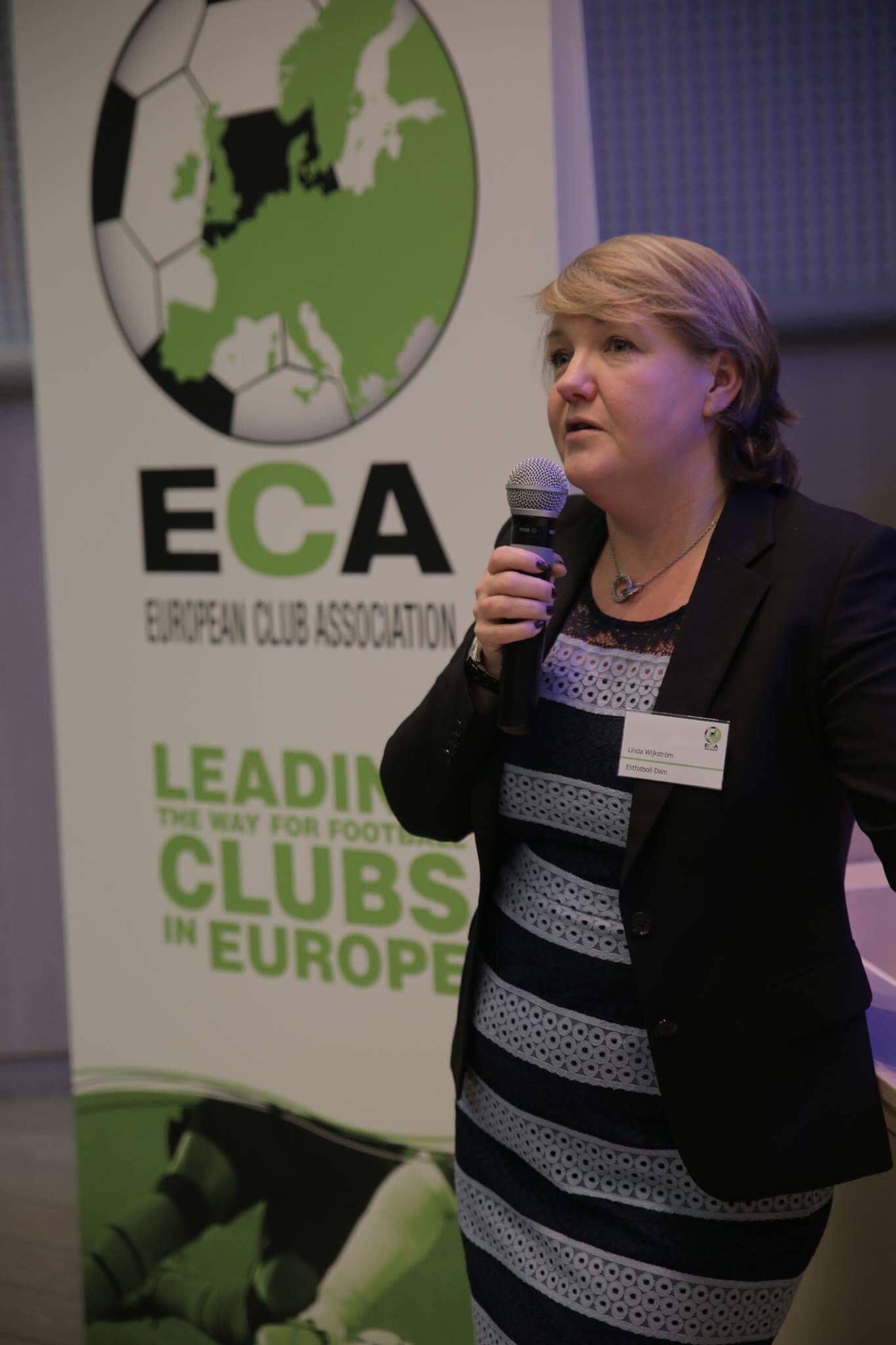ECA News
The ECA Workshop on Women's Club Football, organised by the ECA Women's Football Committee (WFC), saw representatives from over 40 clubs across Europe gather in Florence today to discuss matters concerning the promotion and development of the women's game at club level.

Women's football has been high on ECA's agenda ever since the creation of the organisation and even more so since the establishment of the ECA WFC in 2013. Accordingly, ECA is committed to promoting women's club football and to establishing a dialogue with the relevant stakeholders at European and global level.
Prior to the holding of the workshop, held at the Coverciano training facilities in collaboration with Fiorentina Women's FC, the ECA Women's Football Committee met for the first time in the ECA Membership Cycle 2017-19. Chaired by ECA WFC Vice-Chairwoman & UEFA Women's Football Committee Member, Linda Wijkström, the meeting encouraged discussions concerning challenges and future objectives for the two-year membership cycle. Additionally, representatives from FIFA and UEFA were provided the opportunity to present the latest updates concerning women's football, with Sarai Bareman, FIFA Chief Women's Football Officer, and Anne Vonnez, UEFA Women's Football Competitions Manager, presenting strategy on behalf of their respective organisations.
Commenting on development in the women's game, ECA WFC Vice-Chairwoman Linda Wijkström stated:
"In order to achieve professionalisation and sustainable development in the women's game, it is crucial that clubs are the driving force behind this movement. Women's football in its current landscape favours national associations, with players spending a third of the football calendar on international duty. As clubs are the foundation of the women's game, working daily to promote women's football, there is a need for their interests to be seriously considered."
Regarding today's workshop, she added:
"The interest and active participation from clubs across Europe at today's ECA Workshop demonstrates not only the desire from clubs to continue this development, but also the collective knowledge necessary to implement successful sustainable development."
Following the committee meeting, a second workshop dedicated to women's club football was held in order to provide a platform for clubs, both with and without a women's team, to learn from and engage with clubs that have achieved great success in developing the women's game.
The one-day workshop kicked off with an opening speech from ECA WFC Vice-Chairwoman, Linda Wijkström, who highlighted the decisive role clubs play in the development of players and the women's game as a whole. ECA welcomed FIFA Chief Women's Football Officer, Sarai Bareman, who spoke on the latest strategy the international football governing body has with regards to the women's game.
In order to provide club representatives with a strong understanding of successful strategies that have been implemented, two clubs recognised for their outstanding contribution to the promotion and development of women's club football discussed their experiences and best practice. Sandro Mencucci, Executive Director ACF Fiorentina, spoke on behalf of the event hosts, Fiorentina Women's FC, as he presented a case study detailing the exceptional development of the club, for which the club was recognised with the ECA Best Achievement Award in 2016. In similar fashion, representatives from Sporting Clube de Portugal, Raquel Sampaio, Women's Football Director, and Rita Fontemanha, Club Captain, participated in a Q&A session. They gave insight into how the ECA Women's Club Football Award 2017 winners achieved success both on and off the pitch.
Further keynote speakers included Pedro Malabia, Women's Football Director La Liga, who discussed best practice at the Spanish league, as well as Kayleigh Grieve, Women's Football Marketing Manager UEFA, who informed participants on the marketing strategy of the '#WePlayStrong' campaign. To round off the day, participants split into groups to discuss different strategic items on the future direction of the sport.
The ECA Workshop on Women's Club Football proved to be very successful, providing an opportunity for informative discussion surrounding unique challenges for women's club football, as well as highlighting the crucial role clubs play in the promotion and development of the women's game.

